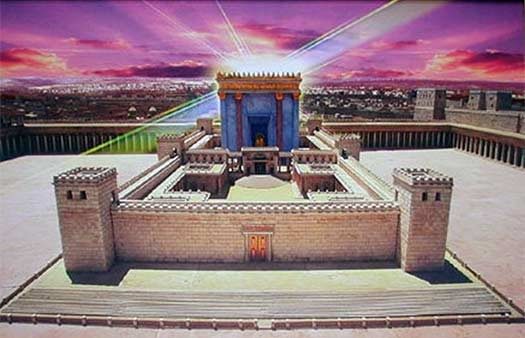
Weekly Dvar Torah: Exile Explained by Redemption
Someone once inquired by an elderly lady about a famous Chosid, she responded, you mean the Meshuggener?
He was shocked, this Chosid you call a Meshuggener?
She responded, unquestionably he is a Meshuggener, this Chosid was in a very joyous mood on Tisha B’Av, they asked him; Reb Chosid, how can you be happy on the saddest day of the year?
He asked; why not?
But it’s Tisha B’Av, the saddest day of the year?
He responded; to mourn on Tisha B’Av is a Rabbinic order, but to be joyous is a Torah order, so which cancels which? Of course, the Torah order cancels the Rabbinic order.
To us he is the Meshuggener, we can’t tolerate such behavior.
This is the dichotomy that Jews experience not only on Tisha B’Av, but our entire existence and our entire calendar is replete with these two extremes.
If G-d is good why is most of our history one of pain and exile, it’s two to one negative to positive.
If the Beis Hamikdash is what G-d wants, why did it exist only for 830 years (add another 479 years for the Mishkan) of our history of 5782 of existence?
If Moshiach and all the great good that he will bring, is the goal of creation, and the entire existence of the world is 6000 years, why are we in 5782 still yearning for the revelation of Moshiach?
These are great questions to which only Hashem and Moshiach will give satisfying answers, like the prophet Yashaya says, after he describes what will happen in the days of Moshiach: וְאָמַרְתָּ בַּיּוֹם הַהוּא אוֹדְךָ יְהוָה כִּי אָנַפְתָּ בִּי יָשֹׁב אַפְּךָ וּתְנַחֲמֵנִי = And you will say on that day, “I thank You, Hashem, for being angry with me; turn away Your wrath and comfort me.
In this one sentence, while we acknowledge the benefit of G-d’s anger with us all these years, we also remember that it was painful, and we ask G-d to comfort us for it.
We thank G-d for it, because then we will understand, as the Rebbe wrote to president Ben-Tzvi from Israel:
“From the time I was a child … I formed in my mind a vision … of a redemption that will explain the suffering, decrees and massacres of exile.”
The good that will come with Moshiach will be so good, that it will explain the long bitter Golus, and we will understand why it was necessary, and we will thank G-d for it, but we will not forget that it was bitter and painful.
Like the Frierdiker Rebbe said after his release from Soviet prison, that no price will he agree to experience it again, but for no price will he sell the experience as well.
It’s a matter of focus, that a mortal cannot understand the creator’s ways is clear and obvious, but when we realize that G-d’s plan is always for the good, so even while experiencing pain, we still feel comforted by the future ultimate good, but when we do get the reward we still remember how painful it was.
This week is the most confusing Shabbos of the year.
The date is Tisha B’Av, the saddest day of the year, we mourn the destruction of the two Temples and all the misfortunes which have befallen on the Jewish people on this day.
We commemorate this day by fasting for 25 hours, we remove our shoes, and we sit on low chairs like mourners during Shiva, and we read the book of Lamentations as we cry over our bitter history.
This year however, on this date, we will celebrate a wonderful Shabbos, and while we prepare for the fast which was pushed off to Sunday, may Hashem send Moshiach to prevent this delayed fast, we will eat and drink like we do every Shabbos, and not only like any other Shabbos, but Shulchan Aruch says that we can feast just like King Solomon did during the prime days of the Jewish people.
Knowing that the good is within reach, should encourage us that even while we are still in Golus, G-d loves us, and He will reward us for not forgetting in a way that will justify, so to speak, even a close to 2000 years of bitter Golus.
In the mourning lies the hope.
We still have to demand from Hashem, and say enough is enough, not one more minute of Golus, it’s high time for us to look back and understand the Golus as a thing of the past.
Ad Mosai = Until when?
Have a feast of a Shabbos blending with Moshiach’s feast and no fast,
Gut Shabbos
Rabbi Yosef Katzman












